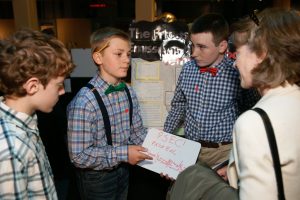Help us collect the effective practices of our Polar ICE Community
March 15-16, 2019
Moss Landing Marine Labs, Monterey, CA
Polar-ICE hosted a two-day Summit to reflect upon the impact of the program over the last three years, as well as discuss lessons learned from the program activities and document ideas for sustaining the impact beyond the life of the grant.
We brought together both scientists and teachers who had previously participated in the Polar ICE project.
The Summit included themed sessions, including:
[toggle title_open=”Teaching, Learning, & Communicating with Data Close” title_closed=”Teaching, Learning, & Communicating with Data Open” hide=”yes” border=”yes” style=”default” excerpt_length=”0″ read_more_text=”Read More” read_less_text=”Read Less” include_excerpt_html=”no”]Session A: Teaching, Learning, & Communicating with Data
- Lightning Talks Round 1: “How has Polar-ICE helped students and/or teachers engage with polar science and/or real world data?”
- SMART Questions lead to Successful Projects, Katie Lodes
- The Mystery of Ocean Acidification, Tricia Thibodeau
- Learning to Love Datasets, Jackie Galella
- Concept Mapping about “engaging audiences with polar science and real-world data”
- Lightning Talks Round 2: “How have we integrated data into our teaching and what we will do differently next time? What are the lessons learned from the Polar-ICE experience?”
- A Picture’s Worth A Thousand Words: A Student-Friendly Introduction to Visualizing Data, Vanessa Keen
- Claims Evidence Reasoning Activity using Icefish Data Story, Hope Bigwarfe
- Teaching Arctic Climate Change Through Student Dialogue Engagement, Turtle Haste
- Penguin Dynamics Along the Antarctic Peninsula (LTER Data), Miriam Sutton
- Folder of resources and Slidedeck Presentation
- Lessons Learned about “teaching with, learning from, and/or communicating through polar data”[/toggle]
[toggle title_open=”Outreach & Communication about Polar Research Close” title_closed=”Outreach & Communication about Polar Research Open” hide=”yes” border=”yes” style=”default” excerpt_length=”0″ read_more_text=”Read More” read_less_text=”Read Less” include_excerpt_html=”no”]Session B: Outreach & Communication about Polar Research
- Lightning Talks:
- The Development of the Polar Literacy Principles (PLP), Janice McDonnell
- Slidedeck Presentation (coming soon)
- Polar ICE in the South, Dr. Barbara Shoplock
- Advancing the Usage of Spherical Medium Storytelling: A Polar-ICE Flavored Approach for K-12 Engagement, Dr. Nicole Trenholm
- Slidedeck Presentation (coming soon)
- What I learned, and did, and am still doing, for outreach about Polar Research as a PolarTREC teacher, Kevin Dickerson
- How Video Conferencing with Scientists Engages Student Learning, Stacey Sebert
- Transforming the traditional science classroom into the world of real time science and discovery, Jillian Worssam
- The Development of the Polar Literacy Principles (PLP), Janice McDonnell
- Lessons Learned “What are the lessons learned and what are we are taking forward in building collaborations between educators and researchers?”[/toggle]
[toggle title_open=”Building Professional Partnerships through Trainings Close” title_closed=”Building Professional Partnerships through Trainings Open” hide=”yes” border=”yes” style=”default” excerpt_length=”0″ read_more_text=”Read More” read_less_text=”Read Less” include_excerpt_html=”no”]Session C: Building Professional Partnerships through Trainings
- Lightning Talks Round 1: “How have we integrated and adapted what we gained from professional trainings into our particular situations?”
- Differentiating Polar ICE Across Multiple Levels and Grades, Jennifer Smolyn & Jackie Katz
- Polar ICE as an Interdisciplinary Unit in Middle School, Bill Henske
- Creative ways to work with data in the classroom, Joanna Chierici
- Connect/Extend/Challenge/Apply Discussion
- Lightning Talks Round 2: “Why did we do what we did in professional partnerships with Polar-ICE and what are pieces that we will carry forward into other aspects of our work?”
- An Administrator’s Perspective, Dr. Edward Cohen
- A Scientist’s Perspective, Dr. Josh Kohut
- A Program Staffer’s Perspective, Kristin Hunter-Thomson
- An Evaluator’s Perspective, Dr. Pam Van Dyk
- Lessons Learned about “delivering, participating in, and applying effective professional development opportunities“[/toggle]
Sessions included 10-minute lightning talks and round table dialogues. The event also included networking and an evening Share-A-Thon for participants to share their favorite Polar-ICE activity, lab, lesson plan, student products, etc. with the group.
- Travel support (flights or mileage to the event, plus lodging) was available if needed, and registration was free.
- Meals were provided during the event.
- Participants were expected to arrive in Monterey Bay by 6pm March 14, 2019 and stay the duration of the event through 2pm Mar 16, 2019
Sponsored by: University California Monterey Bay (UCMB)
Applications for this workshop were due by January 11, 2019.
Past Webinars and Conference Workshops
Polar ICE offered a range of workshops and webinars, in conjunction with polar scientists, to bring polar science and data to more educators nationally and globally.
Workshops and webinars consisted of:
- Conversations with a polar scientist about his/her research and how it is conducted
- Facilitation of educational material related to the scientist’s research (e.g., pre-developed data-focused activities, relevant lesson plans, science practice videos
Resources from recent workshops (lesson plans, web resources):
- Educator Workshop at NSTA Regional Conference in Baltimore – October 7, 2017
- Educator Workshop at NSTA STEM Forum in Orlando, Florida – July 13, 2017
- Educator Workshop at NSTA Regional Conference in Minneapolis – October 29, 2016
- Educator Workshop at Oceans 16 (MTS IEEE/OES) for K-12 Educators – September 17, 2016


